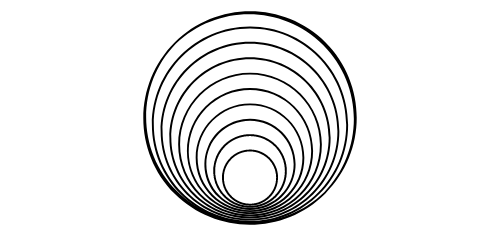Manage Your Anxiety With These Soothing Tips And What Whole Foods To Eat
For those who live with the very real symptoms of anxiety – heart palpitations, nausea, stomach-ache, headache, chest pain and breathlessness – it can be a debilitating condition best described as “living on the edge”. The individual may constantly feel tense, jumpy, fearful and apprehensive and in some cases may fear they are about to die.
When a person is experiencing anxiety the sympathetic nervous system goes into overdrive and the immune and digestive systems shut down. The heart races and the body goes into survival mode (the fight-or-flight response).
For some people, anxiety occurs without explanation; for others it can be triggered by stressful situations at home or at work. It can make the individual feel overwhelmed and extremely isolated. Dietary and lifestyle modification play a big part in the treatment of anxiety. Routine, rest and relaxation are essential.
Stimulating Foods To Avoid
- Caffeine-containing drinks (including coffee, cola and energy drinks) are best avoided, as they overwhelm the nervous system. Chocolate and green tea contain caffeine, so monitor your intake of them.
- Avoid all cold, dry rough and light foods, as they compromise the digestive and nervous systems.
- Vegetables that cool the body include broccoli, cabbage, cauliflower, eggplant, green leafy vegetables (except spinach), potato and tomato, so use them sparingly.
- Corn, millet and barley are grains that dry the body, so avoid them, stew, bake or poach them. Keep your intake of dried fruits (except raisins and dates) to a minimum.
- Refrain from corn chips, crips, crackers and popcorn, as they are light and airy.
- Limit your intake of beans (except mung dal, chickpeas and adzuki beans), as they can create gas in the body.
- Eliminate all chilled drinks and foods, including thickshakes, frappes, slurpees, ice-cream, sorbet and frozen yoghurt.
- Sweet, sugary processed foods cool and rob the body of valuable nutrients.
- Steer clear of carbonated drinks, including soda water and mineral water, as they can cause bloating, light-headedness and stomach-aches.
- Limit your intake of salads and raw foods in the cold, windy months.
- Though alcohol may seem to be helping you to relax, it actually heighthens anxiety and increases the risk of a panic attack.
- Nicotine stimulates the nervous system, so try to stop smoking.
Foods To Soothe The Nervous System
- Foods rich in vitamins B1, B3, B6 and B12 are essential for supporting the nervous system; they include sunflower seeds, corn, black beans, spinach, chicken tuna, salmon, scallops, yoghurt and capsicum.
- Use spices that warm the body; for example, star anise, basil, bay leaf, pepper, caraway, cardamon, chilli, cloves, dill, fennel, garam masala, ginger, mustard seeds, nutmeg, oregano, paprika, rosemary, tamarind, tarragon and thyme.
- Select nourishing grains such as basmati rice, brown rice, whole oats, sushi rice and wheat berries.
- Favour natural sweeteners such as brown rice syrup, dates, unrefined brown sugar, honey, maple syrup and fruit concentrates.
- Include good oils and fats in your diet; for example, coconut, mustard, almond, olive and sesame. Add nuts and seeds containing these oils to cereals, smoothies, warm salads, soups, casseroles and desserts.
- Add “warming” onion, leek, garlic and ginger to all savoury dishes, either chopped and punded to a paste.
- Roast, bake, steam or mash “grounding” vegetables such as carrot, beetroot, squash, sweet potato, pumpkin and daikon. Favour beans, asparagus, artichoke and bok choy.
- Use condiments and pickles that help to stimulate the digestive system; for example, coconut and mango chutney; pickled ginger, daikon or lime; homemade mustard; umeboshi plum; yoghurt raita; brown rice and herb vinegars; horseradish; wasabi; and gomasio (sesame salt).
- Snack on juicy oranges, melons, mango, papaya, grapefruit, apricots, grapes, pineapple and banana.
- Add arame, hijiki, kombu and wakame seaweeds to soups and warm salads.
- Drink calming herbal teas: ginger, lavender, cloves, bancha, chamomile, lemon balm, fennel and licorice.
- Eat foods rich in tryptophan, an amino acid that helps to make serotonin; for example, mango, eggs, banana, spirulina, sunflower seeds, sesame seeds, chickpeas, cottage cheese, milk, poultry and fish.
Mind
- Be aware of how much time you spend in front of the computer and television and playing computer games.
- Don’t push yourself. Too many late nights and early mornings will leave you feeling stretched and stressed.
- Meditation is recommended for an anxiety. An open-eye candle meditation for 10 minutes in the morning and evening will help to balance the pineal and pituitary glands.
- Focus. Don’t let your mind run away with negative thoughts. Tell yourself you are safe. Call a friend to help talk you through an anxious time.
Spirit
- Burn essential oils of lavender, bergamot, frankincense, marjoram, ylang-ylang and sandalwood. (Check with your doctor first if pregnant.)
- When you find yourself becoming anxious, find a quiet place and take 10 deep breaths.
Body
- Get plenty of exercise, which will produce feel-good endorphins that help you to relax and ease anxiety.
- Get help. There are plenty of support groups and therapists that deal with anxiety. Depending on the severity of your anxiety you may also need to consult your doctor.
- Make time to sleep and rest.
- Stay warm and try to avoid fans and air conditioning and exposure to windy environments.
- Rescue Remedy is a specific Bach Flower Remedy designed for times to acute stress and anxiety. A few drops under the tongue will help to relieve the symptoms.
- If possible, limit the amount of flying you do. People who travel for work often report feeling anxious before they leave for a trip. If you must fly make sure you stay warm part of the meal (not, for example, the salad) and avoid consuming alcohol and carbonated drinks.
- Don’t skip meals. You’re better off having smaller, more frequent meals than three large meals a day. The digestive system should not be overloaded when you feel anxious.
- Adopt foods and habit that calm the nervous system.




